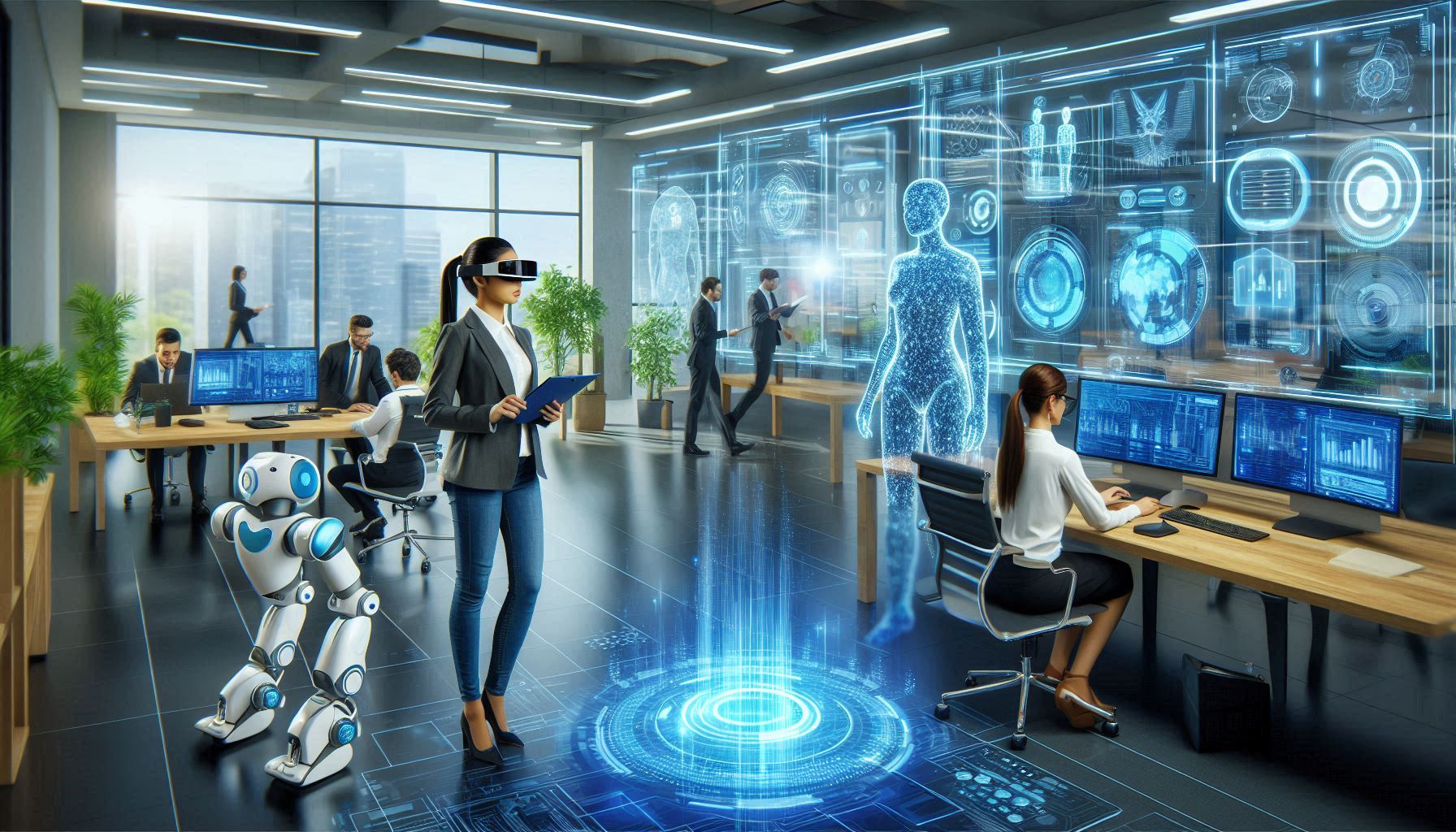How AI is Transforming the Future of Work and Remote Collaboration
 Perity AI
Perity AI
The future of work and remote collaboration is undergoing a profound transformation, driven by the rapid advancements in artificial intelligence (AI). As experts in AI with over a decade of experience, we at AIperity are excited to share our insights on this revolutionary shift.
Are you a business owner, entrepreneur, or professional curious about how AI is reshaping the workplace? Perhaps you're already exploring AI tools to enhance your productivity and streamline remote collaboration. In this comprehensive article, we'll delve into the ways AI is revolutionizing work dynamics and empowering teams to collaborate effectively across distances.
The AI Revolution in the Workplace
Artificial Intelligence is no longer a futuristic concept – it's here, and it's reshaping how we work. From automating routine tasks to facilitating seamless communication, AI is becoming an indispensable tool in modern workplaces.
As the famous futurist Ray Kurzweil once said, "Artificial intelligence will reach human levels by around 2029. Follow that out further to, say, 2045, and we will have multiplied the intelligence – the human biological machine intelligence of our civilization – a billion-fold."
This profound transformation is already visible in various aspects of our work lives:
Enhanced Productivity: AI-powered tools are streamlining workflows and automating repetitive tasks, allowing employees to focus on higher-value work.
Improved Decision Making: Advanced analytics and machine learning algorithms are providing data-driven insights, enabling more informed business decisions.
Personalized Learning: AI is revolutionizing employee training and development through adaptive learning platforms.
Efficient Remote Collaboration: AI-driven collaboration tools are breaking down geographical barriers and fostering seamless teamwork.
AI-Powered Remote Collaboration Tools
The shift towards remote work has been accelerated by recent global events, and AI is playing a crucial role in making this transition smooth and efficient. Let's explore some key areas where AI is enhancing remote collaboration:
1. Intelligent Communication Platforms
AI-powered communication tools are transforming how remote teams interact. These platforms go beyond simple video conferencing:
Real-time language translation for global teams
Sentiment analysis to gauge team morale
Automated meeting summaries and action items
For instance, platforms like Otter.ai use AI to provide real-time transcription during video calls, making it easier for team members to follow up on discussions.
2. Smart Project Management
AI-driven project management tools are revolutionizing how teams organize and track work:
Automated task prioritization based on team capacity and deadlines
Predictive analytics for project timelines and resource allocation
Intelligent chatbots for quick project updates and issue resolution
Tools like Asana and Monday.com are incorporating AI to provide smarter project insights and automate routine management tasks.
3. Virtual Assistants and Chatbots
AI-powered virtual assistants are becoming invaluable for remote teams:
Scheduling meetings across different time zones
Answering frequently asked questions
Providing quick access to company information and resources
For example, x.ai offers an AI assistant that can schedule meetings by communicating directly with participants via email.
4. Enhanced Cybersecurity
With remote work comes increased cybersecurity risks. AI is stepping up to protect remote teams:
Real-time threat detection and response
Behavioral analysis to identify suspicious activities
Automated security updates and patches
Companies like Darktrace use AI to provide adaptive cybersecurity solutions for remote work environments.
The Future of AI in Remote Work
As AI continues to evolve, we can expect even more transformative changes in the way we work remotely:
Immersive Virtual Workspaces: AI-powered virtual reality (VR) and augmented reality (AR) technologies will create more engaging and interactive remote work environments.
Emotional Intelligence in AI: Future AI tools will better understand and respond to human emotions, improving team dynamics and communication.
Autonomous Task Completion: AI will take on more complex tasks, freeing up human workers for strategic and creative work.
Personalized Work Experiences: AI will tailor work environments and tools to individual preferences and working styles.
Embracing AI for Remote Collaboration: Best Practices
To leverage the full potential of AI in remote work, consider the following best practices:
Start Small: Begin with simple AI tools and gradually integrate more complex solutions as your team adapts.
Prioritize Training: Ensure your team is well-trained in using AI tools to maximize their benefits.
Focus on Human-AI Collaboration: View AI as a tool to enhance human capabilities, not replace them.
Maintain a Balance: While AI can greatly improve efficiency, remember to prioritize human connection and creativity.
Stay Informed: Keep up with the latest AI developments and their potential applications in your industry.
Conclusion
The integration of AI in remote work and collaboration is not just a trend – it's the future of how we work. By embracing these technologies, businesses can unlock new levels of productivity, creativity, and employee satisfaction.
At AIperity, we're committed to helping businesses navigate this AI-driven transformation. Our expertise in AI solutions can help you implement the right tools and strategies for your remote teams.
To stay updated on the latest AI trends and solutions for remote work, follow us on our various platforms:
Website: https://aiperity.com
YouTube: https://www.youtube.com/@AIperity
Fanpage: https://www.facebook.com/profile.php?id=61561931647082
Twitter: https://x.com/AIperity
Instagram: https://www.instagram.com/aiperity/
Frequently Asked Questions
How can small businesses benefit from AI in remote work?
Small businesses can leverage AI tools to automate routine tasks, improve customer service with chatbots, and enhance project management. These solutions can help level the playing field with larger competitors by increasing efficiency and reducing costs.
What are the potential challenges of implementing AI in remote work environments?
Some challenges include the initial cost of implementation, potential resistance from employees, data privacy concerns, and the need for ongoing training. However, with proper planning and a phased approach, these challenges can be effectively managed.
How can companies ensure data security when using AI-powered remote collaboration tools?
Companies should prioritize tools with robust security features, implement strong access controls, provide cybersecurity training to employees, and regularly update their security protocols. It's also crucial to work with reputable AI service providers who prioritize data protection and comply with relevant regulations.
Subscribe to my newsletter
Read articles from Perity AI directly inside your inbox. Subscribe to the newsletter, and don't miss out.
Written by

Perity AI
Perity AI
I am a technology engineer, I cover tech news, offer honest reviews, and provide valuable tutorials on cutting-edge tools and software